November 15th, 2020
Consider this ice breaker as you gather for the Spotlight:
What's a common stereotype you think people have about a group to which you belong?
What's a common stereotype you think people have about a group to which you belong?

Focus 3 (of 5) | Connotation
|
Now that you've broken the ice, get into the idea of this Spotlight with another question - this one about goldfish and elephants - by reading through the text below.
(And welcome, by the way! It's great that you're here!)
(And welcome, by the way! It's great that you're here!)
Pick a mug—any mug.
You look into the cupboard (or reach toward the drainer) for a mug. These two are the only ones available. Which do you pick? Why?
(The only wrong answer is no answer.)

The Ted Lasso credited with the “Be a goldfish” quote is a fictional American football coach who is learning to coach soccer (and the main protagonist of the show, Ted Lasso.) In many respects, you can think of him as the Mister Rogers of coaching men’s sports.
(If you’re unfamiliar with Mister Rogers, first, I’m sorry. He was the titular character of a children’s show on PBS in which he played a kindly neighbor with an indefatigably loving, caring nature.)
Anyway, back to Ted Lasso…

Early in Ted's time with the soccer team, a young player named Sam is struggling and being bullied by other players. The goldfish quote comes when Ted calls him over and offers some advice.
Ted: “Hey Sam, come here a second.”
Sam: “Coach, I’m—I’m sorry…”
Ted: “Do you know what the happiest animal on earth is?”
Sam: [Stares blankly.]
Ted: “It’s a goldfish. Do you know why?”
Sam: “Nnnn—o.”
Ted: “It’s got a 10-second memory.”
Sam: [Stares blankly.]
Ted: “Be a goldfish, Sam.”
Sam: [Stares blankly.]
Ted: “Yeah. You’ve got it. Get on now.”
Ted’s encouragement to Sam aligns well with this Spotlight.

As this series continues to consider the them…you…us progression (the progression that leads to unity or, reversed, leads to division), it must take a look at the crucial point of how-to-think-about-the-others, or controlling connotation.
(In other words, the centerpiece of the progression.)
How a person perceives others—and just as importantly, how that person thinks they are perceived by others—can change everything about an interaction. Controlling that, in many cases, comes down to what you choose to remember, and what you choose to forget.

You look into the cupboard (or reach toward the drainer) for a mug. These two are the only ones available. Which do you pick? Why?
(The only wrong answer is no answer.)

The Ted Lasso credited with the “Be a goldfish” quote is a fictional American football coach who is learning to coach soccer (and the main protagonist of the show, Ted Lasso.) In many respects, you can think of him as the Mister Rogers of coaching men’s sports.
(If you’re unfamiliar with Mister Rogers, first, I’m sorry. He was the titular character of a children’s show on PBS in which he played a kindly neighbor with an indefatigably loving, caring nature.)
Anyway, back to Ted Lasso…

Early in Ted's time with the soccer team, a young player named Sam is struggling and being bullied by other players. The goldfish quote comes when Ted calls him over and offers some advice.
Ted: “Hey Sam, come here a second.”
Sam: “Coach, I’m—I’m sorry…”
Ted: “Do you know what the happiest animal on earth is?”
Sam: [Stares blankly.]
Ted: “It’s a goldfish. Do you know why?”
Sam: “Nnnn—o.”
Ted: “It’s got a 10-second memory.”
Sam: [Stares blankly.]
Ted: “Be a goldfish, Sam.”
Sam: [Stares blankly.]
Ted: “Yeah. You’ve got it. Get on now.”
Ted’s encouragement to Sam aligns well with this Spotlight.

As this series continues to consider the them…you…us progression (the progression that leads to unity or, reversed, leads to division), it must take a look at the crucial point of how-to-think-about-the-others, or controlling connotation.
(In other words, the centerpiece of the progression.)
How a person perceives others—and just as importantly, how that person thinks they are perceived by others—can change everything about an interaction. Controlling that, in many cases, comes down to what you choose to remember, and what you choose to forget.

See what this Spotlight—and series—is focused on.
Tap on the words "Focus 3" in the image below to read this Spotlight's summary.
Tap on the words "Focus 3" in the image below to read this Spotlight's summary.
Hopefully all of that makes enough sense to get you started. Pray these words together as you get into it:
Lord,
You look at us and see us as you wish to see us -
not as we truly are -
because of your love.
Help us to see others the same way that you see us,
and forgive us when we don't.
Amen.
Lord,
You look at us and see us as you wish to see us -
not as we truly are -
because of your love.
Help us to see others the same way that you see us,
and forgive us when we don't.
Amen.
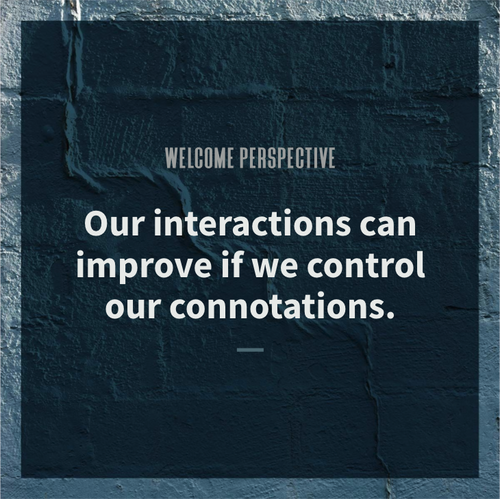
Think about your ‘notes.’
You have ‘notes’ that could be added to yourself. Think, for example, of all the ways various entities in the world categorize you.

(I’m sure you can think of others, too. It’s frankly exhausting. I’m sorry you are commoditized in so many ways, you complex and wonderful and fearfully-made being.)
Of course, it’s not just random entities “out there” that categorize you.
Everyone has ‘notes’ about themselves, including lists of…
The great thing about God? He doesn’t need notes, so he can do whatever he wants with whatever notes he may have.
You have ‘notes’ that could be added to yourself. Think, for example, of all the ways various entities in the world categorize you.

(I’m sure you can think of others, too. It’s frankly exhausting. I’m sorry you are commoditized in so many ways, you complex and wonderful and fearfully-made being.)
Of course, it’s not just random entities “out there” that categorize you.
Everyone has ‘notes’ about themselves, including lists of…
- regrets
- failures
- fears
- missed opportunities
- hidden truths
- bad habits
- broken promises
- unmet goals
- cynicisms
- and more…
The great thing about God? He doesn’t need notes, so he can do whatever he wants with whatever notes he may have.
Choose a verse as a reminder this week.
God doesn’t consider your connotations. God sees you as pure, and with room for new notes. Out with the old (whether seemingly good or bad), and in with the new—starting with Jesus Christ. (Watch how much focus is put on Jesus in this section of the Bible that talks about our “old notes” vs our “new notes.”)
But whatever were gains to me I now consider loss for the sake of Christ. What is more, I consider everything a loss because of the surpassing worth of knowing Christ Jesus my Lord, for whose sake I have lost all things. I consider them garbage, that I may gain Christ and be found in him, not having a righteousness of my own that comes from the law, but that which is through faith in Christ—the righteousness that comes from God on the basis of faith. I want to know Christ—yes, to know the power of his resurrection and participation in his sufferings, becoming like him in his death, and so, somehow, attaining to the resurrection from the dead.
Philippians 3:7–11
These verses say that the old notes are garbage, so you can treat them as such. Get rid of them—God already has. Instead, take one of these verses, write it on a piece of paper, on your desktop, or in an app, and put it somewhere you’ll see it this week.
God doesn’t consider your connotations. God sees you as pure, and with room for new notes. Out with the old (whether seemingly good or bad), and in with the new—starting with Jesus Christ. (Watch how much focus is put on Jesus in this section of the Bible that talks about our “old notes” vs our “new notes.”)
But whatever were gains to me I now consider loss for the sake of Christ. What is more, I consider everything a loss because of the surpassing worth of knowing Christ Jesus my Lord, for whose sake I have lost all things. I consider them garbage, that I may gain Christ and be found in him, not having a righteousness of my own that comes from the law, but that which is through faith in Christ—the righteousness that comes from God on the basis of faith. I want to know Christ—yes, to know the power of his resurrection and participation in his sufferings, becoming like him in his death, and so, somehow, attaining to the resurrection from the dead.
Philippians 3:7–11
These verses say that the old notes are garbage, so you can treat them as such. Get rid of them—God already has. Instead, take one of these verses, write it on a piece of paper, on your desktop, or in an app, and put it somewhere you’ll see it this week.
- 2 Corinthians 5:17 | Therefore, if anyone is in Christ, the new creation has come: The old has gone, the new is here!
- Psalm 25:7 | Do not remember the sins of my youth and my rebellious ways; according to your love remember me, for you, Lord, are good.
- 1 Peter 1:23 | For you have been born again, not of perishable seed, but of imperishable, through the living and enduring word of God.
Listen to this song about how God sees you and your connotations.
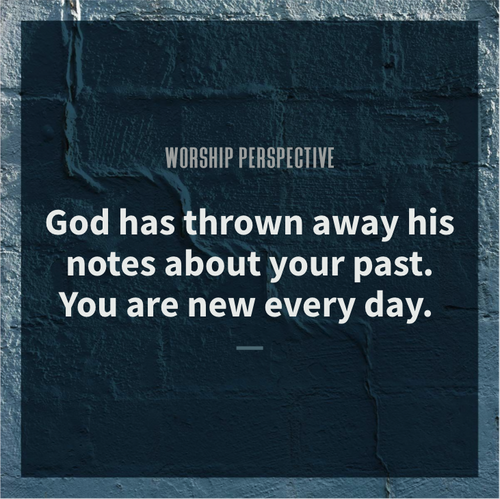
Let’s define connotation.
Connotation comes from two Latin words: “con” means “with,” and “notation” means, well, notation.
Therefore, to have a connotation toward something means to look at it not simply as it is, but with some kind of notes. These notes might come from previous experience, prior knowledge, or hearsay—but they consist of things you believe apply to whatever is at hand.
The human mind uses connotations to take short-cuts toward understanding.
(This has pros and cons…)
Watch this video of a connotation-related study by Harvard.
Connotation comes from two Latin words: “con” means “with,” and “notation” means, well, notation.
Therefore, to have a connotation toward something means to look at it not simply as it is, but with some kind of notes. These notes might come from previous experience, prior knowledge, or hearsay—but they consist of things you believe apply to whatever is at hand.
The human mind uses connotations to take short-cuts toward understanding.
(This has pros and cons…)
Watch this video of a connotation-related study by Harvard.
Consider the many faces of connotation.
He has shown you, O mortal, what is good. And what does the Lord require of you? To act justly and to love mercy and to walk humbly with your God.
Micah 6:8
Getting control over your connotations requires identifying and understanding them. The more you understand the connotations through which you perceive someone, the more you’ll be ready to “act justly and to love mercy.”
(The complicated part is that there are as many versions of connotation as there are people.)
To practice identifying different ways connotation becomes part of human thinking (and in honor of the life of long-time Jeopardy host, Alex Trebek) here’s a game of Connotations Jeopardy.
(Begin by selecting “When They Don’t Know You” for 100. If you’re in a group, whoever states the correct answer first gets to choose the next answer. If you’re doing this Spotlight on your own, the board is yours.)
Word Bank:
Assumption | Insensitivity | Bigotry | Tolerance | Prediction | Injustice | Discrimination | Prejudice | Unfairness | Reputation | Intolerance | Partiality | Favoritism | Ignorance | Rejection | Predilection
He has shown you, O mortal, what is good. And what does the Lord require of you? To act justly and to love mercy and to walk humbly with your God.
Micah 6:8
Getting control over your connotations requires identifying and understanding them. The more you understand the connotations through which you perceive someone, the more you’ll be ready to “act justly and to love mercy.”
(The complicated part is that there are as many versions of connotation as there are people.)
To practice identifying different ways connotation becomes part of human thinking (and in honor of the life of long-time Jeopardy host, Alex Trebek) here’s a game of Connotations Jeopardy.
(Begin by selecting “When They Don’t Know You” for 100. If you’re in a group, whoever states the correct answer first gets to choose the next answer. If you’re doing this Spotlight on your own, the board is yours.)
Word Bank:
Assumption | Insensitivity | Bigotry | Tolerance | Prediction | Injustice | Discrimination | Prejudice | Unfairness | Reputation | Intolerance | Partiality | Favoritism | Ignorance | Rejection | Predilection
As you can see, there are many versions of connotation—some positive, some neutral, some negative. Which of these do you tend to bring into your interactions with others?
Let’s play another game—another game of Jeopardy—but different.
This round is designed to impress two things on you:
(Bonus points if you can give/guess the book, chapter, and verse. Also, no word bank this time! Simply call out the question if you know it, and whoever gets it right gets to pick the next answer.)
This round is designed to impress two things on you:
- God is impartial.
- You are called to be impartial.
(Bonus points if you can give/guess the book, chapter, and verse. Also, no word bank this time! Simply call out the question if you know it, and whoever gets it right gets to pick the next answer.)
Thanks for playing. Here’s the point:
- Connotation comes in many forms.
- God is impartial.
- You are called toward impartiality, too—which means learning to identify your connotations.
- What versions of connotation did you identify in yourself that you hadn’t spent much time considering before?
- What does it mean to you that God is truly impartial?
- How does the fact that God approaches you without notes (as we talked about in the Worship section) affect your ability to do the same for others?
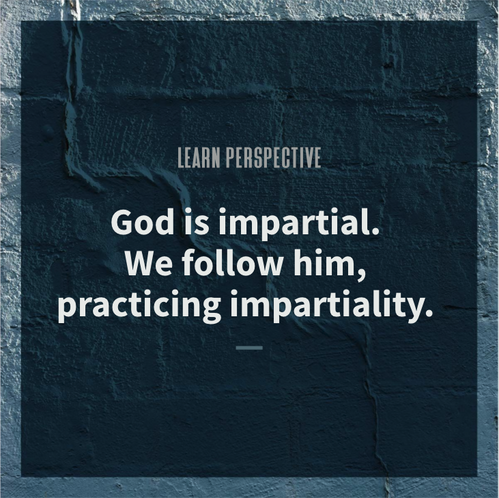
Let’s talk about (and do something with) radical listening.
In last week’s Spotlight, “Confrontation,” the idea of radical listening was introduced.
To review, take a look at this PDF summary of radical listening from the communication experts at Connected Realities.
This week’s serve opportunity is an exercise in radical listening in a completely safe environment. The task is simple: find and listen to at least three minutes of content with which you disagree. This might mean switching radio stations, watching a politician speak on YouTube, or finding the testimonial page on the website of an organization you don’t support. As you listen, apply the principles of radical listening.
(If you’re doing this Spotlight with a group and you already have an idea where you’ll turn to complete this, please share it with your group. You might help someone else find the resource they’re looking for, too.)
In last week’s Spotlight, “Confrontation,” the idea of radical listening was introduced.
To review, take a look at this PDF summary of radical listening from the communication experts at Connected Realities.
This week’s serve opportunity is an exercise in radical listening in a completely safe environment. The task is simple: find and listen to at least three minutes of content with which you disagree. This might mean switching radio stations, watching a politician speak on YouTube, or finding the testimonial page on the website of an organization you don’t support. As you listen, apply the principles of radical listening.
(If you’re doing this Spotlight with a group and you already have an idea where you’ll turn to complete this, please share it with your group. You might help someone else find the resource they’re looking for, too.)
Feel free to submit a prayer request by filling out the below form.
(If you choose to make your request public, you'll see it display in the Current at the end of the Spotlight along with anyone else who did the same.)
(If you choose to make your request public, you'll see it display in the Current at the end of the Spotlight along with anyone else who did the same.)
Pray through your requests—together—as a group.
After submitting your requests in the above form, take some time to share with your group whatever requests the group might have for this week.
After submitting your requests in the above form, take some time to share with your group whatever requests the group might have for this week.
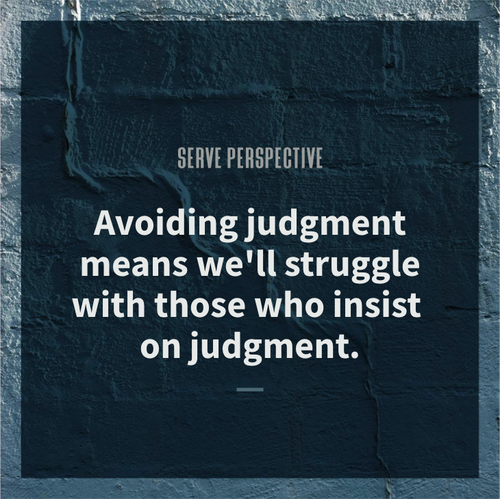
Pray, using the prompts in this video.
Sing along with (or listen to) this song to close out this Spotlight.
Feel free to sing along or simply listen. Do what makes you comfortable—but do whatever helps you focus on the song's meaning best.
Feel free to sing along or simply listen. Do what makes you comfortable—but do whatever helps you focus on the song's meaning best.
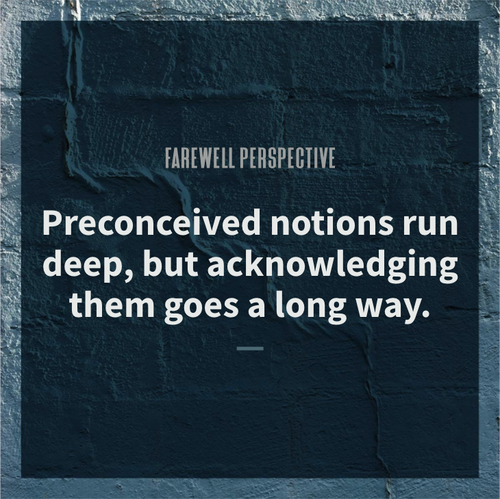
Let's wrap things up by taking a look at what's Current at Illume.
Tap on the buttons in the frame below to see what’s currently happening at Illume—information on everything from current and upcoming online content to live events and opportunities to serve in the community can all be found here.
Tap on the buttons in the frame below to see what’s currently happening at Illume—information on everything from current and upcoming online content to live events and opportunities to serve in the community can all be found here.
Posted in On Letting Division Cease

No Comments